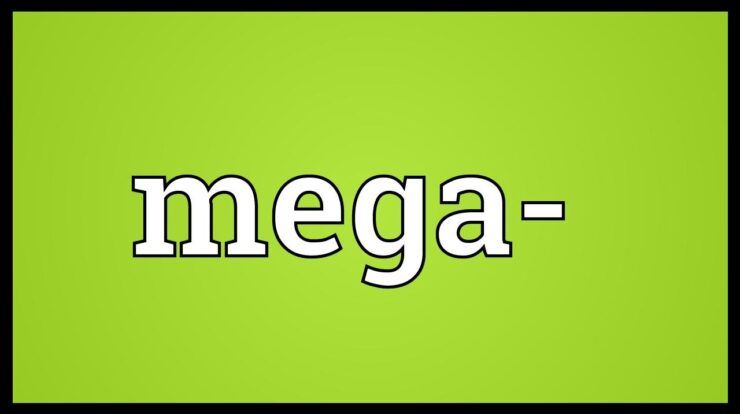
Mega meaning – Mega, a ubiquitous term in our lexicon, carries a diverse range of meanings that span scientific, cultural, and colloquial realms. From its etymological roots to its modern-day usage, mega’s multifaceted nature invites exploration and understanding.
As we delve into the etymology of mega, we uncover its historical origins in ancient Greek, where it signified “great” or “large.” Over time, its linguistic evolution led to the term’s adoption in various languages, including English, where it gained widespread usage.
Etymology and Origin
The term “mega” has its roots in the Greek word “μέγας” (mégas), meaning “great” or “large”. This word has been used in various languages and cultures throughout history, including Latin, French, and English.
In the 19th century, the term “mega” was adopted into the scientific and technical vocabulary to denote a large quantity or magnitude. The SI prefix “mega” (M) was introduced to represent a factor of 10 6(one million).
Usage and Meaning: Mega Meaning

The term “mega” is commonly used to describe something large or significant in size, scale, or quantity. It can be applied to both physical and abstract concepts, such as “megafauna” (large animals) or “megahit” (a highly successful film or song).
In colloquial usage, “mega” is often used as an intensifier, emphasizing the greatness or magnitude of something. For example, someone might describe a particularly impressive achievement as “mega cool” or “mega awesome”.
Scientific and Technical Applications, Mega meaning
In scientific and technical contexts, “mega” is used as an SI prefix to denote a factor of 10 6. This prefix is commonly used in units of measurement, such as the megabyte (MB), megahertz (MHz), and megawatt (MW).
Examples of scientific and technical terms that incorporate “mega” include:
- Megafauna: Large animals, typically weighing over 45 kilograms (100 pounds)
- Megawatt: A unit of power equal to one million watts
- Megaparsec: A unit of distance in astronomy, equal to 3.26 million light-years
Cultural and Colloquial Usage
The term “mega” has also found its way into popular culture and colloquial speech. It is often used to describe something that is extremely large, impressive, or successful.
Examples of cultural and colloquial usage include:
- Megahit: A highly successful film, song, or other cultural product
- Mega-event: A large-scale event, such as a sporting event or concert
- Mega-corporation: A very large and powerful company
Variations and Synonyms
Common variations and synonyms of “mega” include:
- Giga (G): A factor of 10 9(one billion)
- Tera (T): A factor of 10 12(one trillion)
- Enormous
- Colossal
- Gigantic
While these terms have similar meanings, they can vary in their intensity and formality. “Mega” is generally considered to be more informal than “giga” or “tera”, and it is often used in colloquial speech.
Conclusion

In conclusion, mega’s meaning is as vast and multifaceted as the contexts in which it is employed. Its scientific applications in the realm of measurement and its cultural significance in popular speech attest to its enduring relevance. Understanding the nuances and connotations associated with mega empowers us to effectively communicate and comprehend its intended meaning across diverse contexts.
Questions Often Asked
What are the historical roots of the word “mega”?
Mega traces its origins to the ancient Greek word “megas,” meaning “great” or “large.”
How is “mega” used in scientific contexts?
In the scientific realm, mega is employed as a prefix denoting a million-fold increase. For instance, a megawatt represents a million watts.
What are some common synonyms for “mega”?
Synonyms for mega include colossal, enormous, and vast.